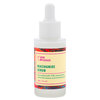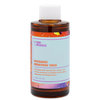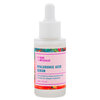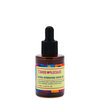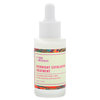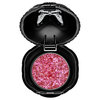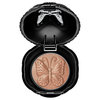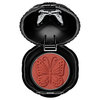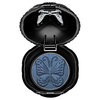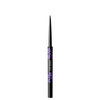
You give your eyes, nose, mouth, and hands the care they crave, but what about the missing sensory tool—your ears? Responsible for collecting and processing every sound you hear, ears also help keep your balance so you don't fall over. They play a huge role for our bodies, so why do we neglect their care in our beauty routine? We asked Boston-based ear, nose, and throat specialist and facial plastic surgeon Jeffrey H. Spiegel, M.D., FACS to explain some of the most common hazards for your lobes and recommend the best ear care beauty practices.
The Wax Debate
Ear wax may seem a burden to most, but it actually protects the inner ear area from damage. The ear is self-cleaning, and uses its canal to naturally push out any excess wax. Any poking and prodding from your Q-tip is counterproductive, and actually propels the wax back into the ear. Dr. Spiegel also advises against ear coning and candling methods. "The whole premise is nonsensical," says Dr. Spiegel on the candle technique. "Ear wax is much too thick to be sucked out, and the vacuum force of the candle is non-existent." If you think your ears are over-clogged, see an ear, nose, and throat specialist for a cleaning.
UV & Environmental Exposure
While ears naturally secrete protective oils, the outside of your ear (called the pinna) is often exposed to and affected by atmospheric elements, including UV rays and the harsh winter chill. "Ears are very subject to frostbite, so it's important to moisturize often," advises Dr. Spiegel. In the summertime, the pinna is often neglected and burns easily, and excess sun exposure can lead to certain skin cancers. To protect this sensitive area, Dr. Spiegel recommends using a physical sunscreen (a formula that uses titanium dioxide or zinc oxide as an active ingredient) with an SPF factor of at least 15. Make things easy on yourself and massage any excess product left from morning sunscreen application onto your ear lobes.
Metal Allergies & Piercings
Certain metallic molecular structures trigger all kinds of responses in the body, which is why many Beauties experience piercing allergies. The structures of gold and stainless steel are chemically inactive and stable, which is why most people can wear these metals without infection. The purer the gold is, (24k versus 14k, for example) the lesser chance of an allergy on human skin. "Gold is so inert that we can implant it directly beneath the skin without issues," notes Dr. Spiegel. However, metals such as nickel are often problematic for sensitive ears, and can cause inflammation and encrustation.
As women age, piercings and gauges begin to stretch and can even tear the ear hole. "I've seen cases where women have accidentally torn their ear lobes from earrings," recalls Dr. Spiegel. To prevent unwanted stretching, remember to remover your heavy earrings every evening.
 Noise
Noise
Headphones seem like a breeding ground for bacteria, but its actually the noise they play that's more damaging. "There's a huge hearing loss problem from ear-bud headphones," says Dr. Spiegel. Booming music can permanently damage the ear drum, so turn down the volume and for safety, stick with hearing devices you don't directly insert inside the ear canal.
Hair
Hair removal is especially cumbersome around the ear area. Ear hair is more common in men than women, but little whiskers are a cosmetic annoyance regardless of gender. You can use specific ear hair removal devices or nose hair scissors to get rid of pesky whiskers, but Dr. Spiegel warns of the potential dangers associated with ear hair removal. "Ear hair removal can lead to infection that cause permanent damage, so be very careful in your technique and keep the area sterile."
Blemishes
There's nothing more annoying than a painful pimple you can't see. And since ears produce protective sebum, these areas are still subject to the occasional clogged pore. While blemishes on the ears usually go away on their own, A throbbing bump on the lobe or in the ear canal might be a cyst, so see your doctor to get it professionally removed. Never attempt to pop any ear pimples yourself.

Jeffrey H. Spiegel, M.D., FACS is a world renowned, Boston-based facial plastic surgeon and otolaryngologist specializing in advanced facial aesthetics of the head and neck. He is also the Chief of the Division of Facial Plastic & Reconstructive Surgery at Boston University Medical Center, and offers a full spectrum of cosmetic and reconstructive treatments including facelift, eyelift, nose surgery, and facial shaping.
You Might Also Like
-
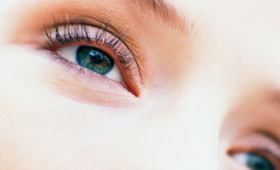
Wellness
What are Those Bumps Under Your Eyes?
- 492
-
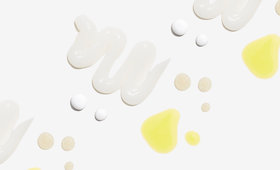
Expert Skin Care Advice
How to Moisturize Properly, According to Science
- 10
-

Skincare
What Are Those Bumps on Your Arms?
- 354
-
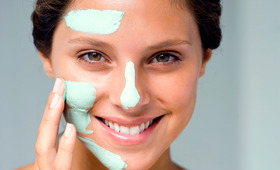
Expert Skin Care Advice
Dermatologist Shares Her DIY Skin Care Recipes
- 1871
-

Blemish & Acne Treatments
So Long, Summer Breakouts!
- 77
-
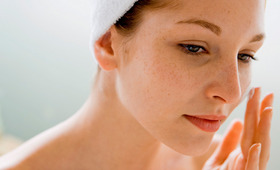
Expert Skin Care Advice
What Does PMS Look Like On Your Skin?
- 187
-
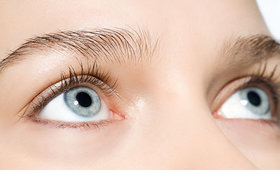
Eyes
How to Defeat Dark Under Eye Circles—for Good
- 1109
-
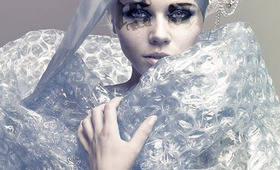
Expert Skin Care Advice
Winterize Your Beauty Routine
- 102



 Noise
Noise
